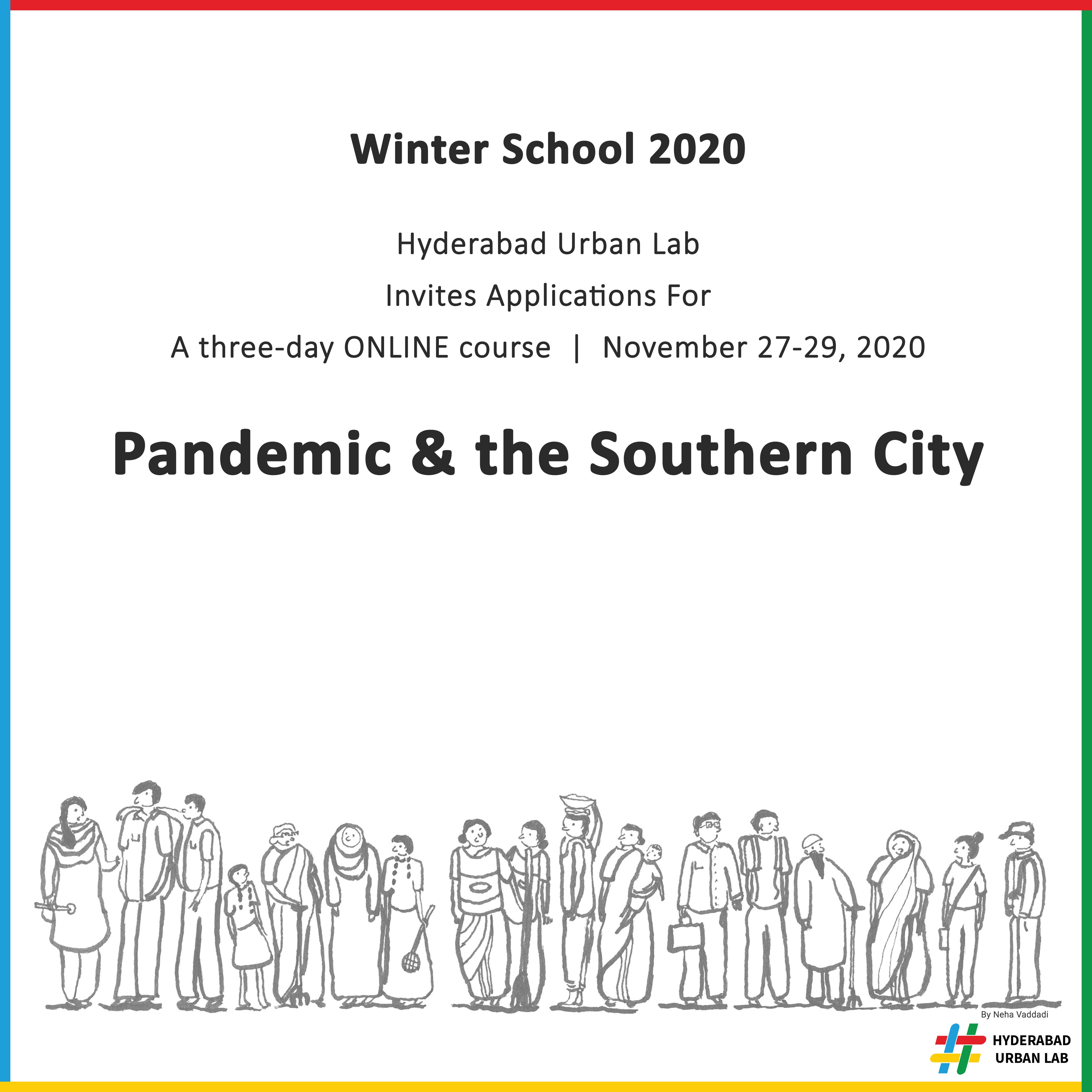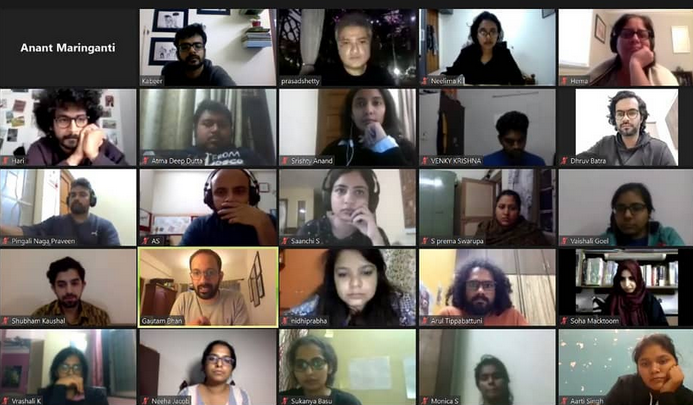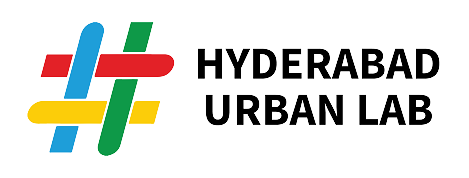HUL School
HUL School is envisaged to grow into a learning platform around urbanisation in the global south. We understand this as a task of crafting a critical sensibility learning practical skills for a global future. We value experimenting with new forms of knowledge. We value everyday life of the majority of people who live in various conditions of vulnerabilities and bear the burden of history in many different forms. We have run three online courses on Pandemic and the Southern City and three training programs in GIS and spatial thinking between November 2020 and May 2022. Students enrolled in these courses from Hyderabad itself and from other cities in India and overseas. We are looking forward to consolidating this experience.
Pandemic & the Southern City

Announcement poster for the first edition of Pandemic & the Southern City, conducted in November 2020.

Teaching, training and mentoring have been a fundamental part of HUL’s practice for the last decade. These programmes, often conducted in collaboration with other insitutes, have been deeply embedded in Hyderabad’s neighbourhoods and are intensive on fieldwork. While focusing on sensory and lived experience of participants, abstraction and concept building has been an important part of all our programmes.
In 2020, following the pandemic induced lockdown and the consequential restrictions on movement and fieldwork, we introduced a series of three-day online courses for graduate students, early and mid-career researchers, and urban practitioners. Titled “Pandemic & the Southern City”, these courses drew on three main resources: the growing body of scholarship on Southern Urban Theory, the respective practices of faculty members, and the resources generated through HUL’s practice, during and before the COVID-19 pandemic and lockdowns.
Three editions of these courses have been offered so far, in November 2020, March 2021 and November 2021. More than 70 individuals, from different places, varied life experiences and diverse professional backgrounds have been a part of the course.
Split between three sessions on each day, the courses dedicated equal time to lectures on theory, discussions on learnings from practice, and interactive sessions where participants could reflect on the lectures and speak from their experiences of the urban.
The theoretical lectures introduced students to the foundational concepts related to the Global South and Southern Urban Theory.
In discussions on practice, different faculty members brought in ideas on practice works, or how things are done in the context of cities of the Global South. These included discussions on how space and planning interact, questions of rent and property in an informal rental market, food systems and supply chains, improvised networks of care and support.
Each day closed with an informal, open ended discussion between participants and faculty, where participants reflected on the sessions and thought of ways to articulate and structure their own practice.
Testimonials from Participants
As someone trained in political science (and not in urban studies), I was a little worried I might feel out of place, but the readings and webinars were really interesting, and I think it helped that the group was a mix of practitioners and academics who come from different backgrounds and areas of study. The readings were relevant and interesting, and the discussions were rich. I also see why the participants were encouraged to write about their experiences before the course; it made the discussions more useful, and I think personally, I have come back with some new language in which I can articulate my thoughts. I really think I’ll be able to carry some of what I learnt to my other projects!
– Harikrishnan S., Postdoctoral researcher, Dublin City University
I fully expected to come out of the three days feeling like I could not function anymore and found instead that it was the opposite – that I was actually rejuvenated, that it gave me a lot to think about with my own work, and that I met other people that I enjoyed thinking with. This is so rare and so precious, and I don’t think any amount of thank yous to all of you for making it so will be enough in this regard.
– Kimberly Fernandes, Doctoral Student, University of Pennsylvania
I think one of the best parts about the way the course and the presentations had been organized was that it brought together the dimensions of both theory and practice in the ongoing pandemic, new ways of looking at the city in the context of the pandemic whilst also shedding light on how at an individual and organizational scale, actions/interventions can be executed. The workshop has certainly added to my vocabulary of words, especially ‘transactional spaces’ and ‘patchwork’ are two terms that will stay with me in all future thinking.
– Soha Macktoom, Researcher, Karachi Urban Lab
GIS@HUL: Maps, Stories and Hyderabad
GIS@HUL, started in December 2021, is a workshop meant to foster a spatial imaginations and data skills for residents, social scientists, urban practitioners and social workers. The workshops are taught over multiple sessions through three intensive days, familiarise participants with the basics of spatial thinking, and introduce them to the tools and data sets necessary to work with maps and data. We use specialised datasets and maps, to teach participants the methods and intricacies of assessing and uncovering disaster risk in urban areas.
With increasing heat waves, urban floods and air pollution year around, our cities and their residents are facing different kinds and degrees of risk and hazard through the year. These workshops, tailored for individuals diverse backgrounds and interests, are meant to build capacities in citizens to work with spatial data, so they work together for their cities, as and when the need arises.
